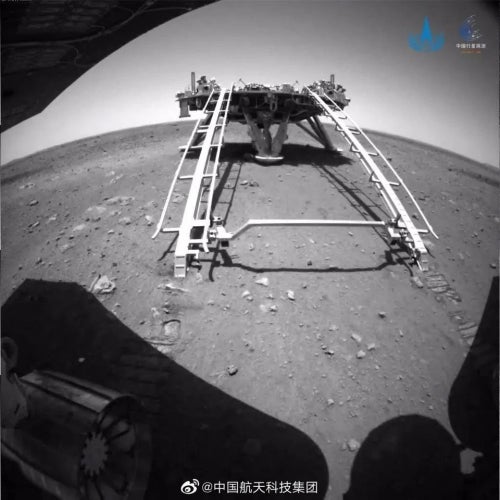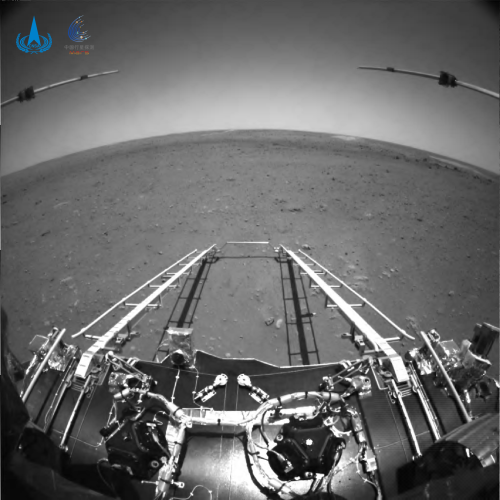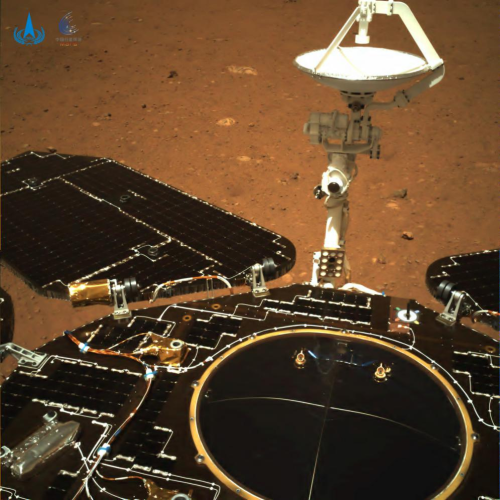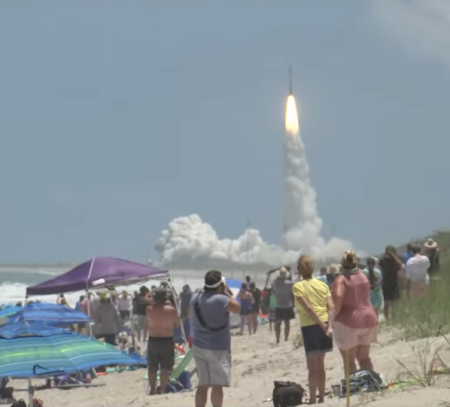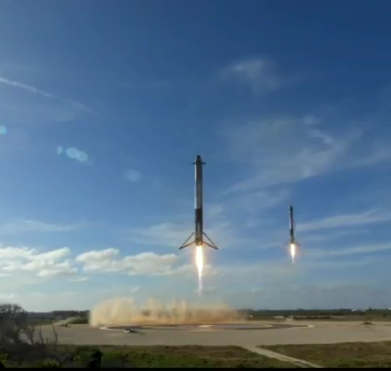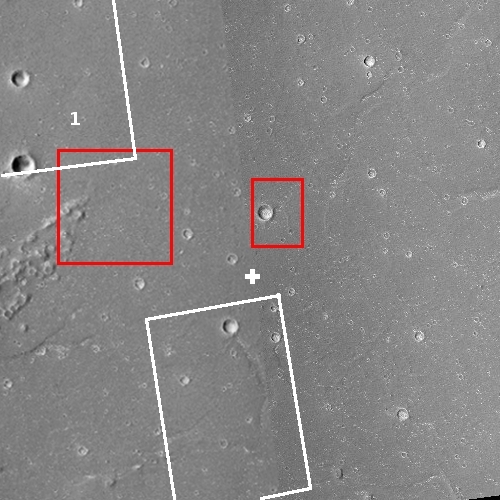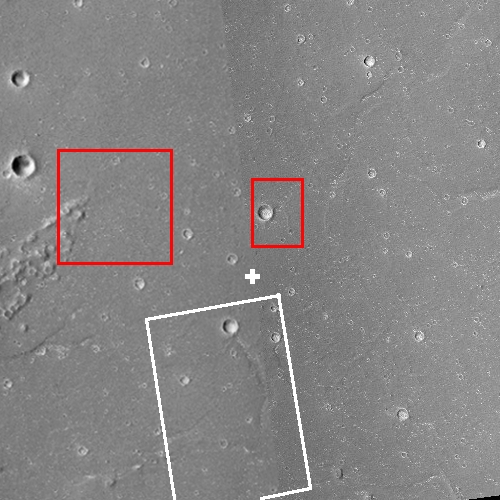Viasat asks FCC to block further launches of SpaceX’s Starlink satellites
Capitalism in space? The geosynchronous communications satellite company Viasat has demanded the FCC freeze any further launches of SpaceX’s quickly growing constellation of Starlink satellites.
The company claims a recent modification of SpaceX’s FCC license should not have been granted without a new environmental review of the 4,000+ satellite constellation’s impact.
Viasat is asking the FCC to hit pause on further launches until federal courts can review the legality of the license modification.
Carlsbad, California-based Viasat, which provides broadband services from geostationary orbit (GEO), had petitioned the FCC to conduct an environmental review before granting the license modification as part of the National Environmental Policy Act (NEPA), which currently categorically exempts satellite systems, but says this did not happen despite megaconstellations bringing new considerations for regulators.
Some astronomers had also requested an environmental assessment, worried about how the constellation’s reflectivity affects ground-based telescope observations.
What is really happening here is that Viasat, having discovered its market share is seriously threatened by a competitor, is trying to use the government to squelch that competition. Viasat doesn’t really give a twit about the environmental issues. It is launching its own new three-satellite geosynchronous constellation next year to provide broadband services globally, and Starlink’s success threatens to cut into its profits.
The article also reveals one interesting tidbit about former NASA administrator Jim Bridenstine. During his short three-year tenure heading NASA he aggressively moved to encourage provide competition and private enterprise by transferring the design, construction, and ownership of rockets and spaceships from NASA to the commercial sector.
Now that he is out of the government however he — like most Washington swamp creatures — has discovered his true calling: using his influence to squelch private competition:
In April, former NASA administrator Jim Bridenstine joined Viasat’s board of directors. Bridenstine told SpaceNews in an interview at the time that the threat of megaconstellations to space safety, and the overall space access environment, were among issues on his radar.
Like a ventriloquist’s dummy, Bridenstine upon leaving NASA immediately began mouthing the manufactured concerns of his new patrons at Viasat. To hell with allowing real competition and freedom. It is much more important to manipulate the power of the government to prevent Viasat’s competitors from succeeding. And earn a nice big salary at the same time.
Capitalism in space? The geosynchronous communications satellite company Viasat has demanded the FCC freeze any further launches of SpaceX’s quickly growing constellation of Starlink satellites.
The company claims a recent modification of SpaceX’s FCC license should not have been granted without a new environmental review of the 4,000+ satellite constellation’s impact.
Viasat is asking the FCC to hit pause on further launches until federal courts can review the legality of the license modification.
Carlsbad, California-based Viasat, which provides broadband services from geostationary orbit (GEO), had petitioned the FCC to conduct an environmental review before granting the license modification as part of the National Environmental Policy Act (NEPA), which currently categorically exempts satellite systems, but says this did not happen despite megaconstellations bringing new considerations for regulators.
Some astronomers had also requested an environmental assessment, worried about how the constellation’s reflectivity affects ground-based telescope observations.
What is really happening here is that Viasat, having discovered its market share is seriously threatened by a competitor, is trying to use the government to squelch that competition. Viasat doesn’t really give a twit about the environmental issues. It is launching its own new three-satellite geosynchronous constellation next year to provide broadband services globally, and Starlink’s success threatens to cut into its profits.
The article also reveals one interesting tidbit about former NASA administrator Jim Bridenstine. During his short three-year tenure heading NASA he aggressively moved to encourage provide competition and private enterprise by transferring the design, construction, and ownership of rockets and spaceships from NASA to the commercial sector.
Now that he is out of the government however he — like most Washington swamp creatures — has discovered his true calling: using his influence to squelch private competition:
In April, former NASA administrator Jim Bridenstine joined Viasat’s board of directors. Bridenstine told SpaceNews in an interview at the time that the threat of megaconstellations to space safety, and the overall space access environment, were among issues on his radar.
Like a ventriloquist’s dummy, Bridenstine upon leaving NASA immediately began mouthing the manufactured concerns of his new patrons at Viasat. To hell with allowing real competition and freedom. It is much more important to manipulate the power of the government to prevent Viasat’s competitors from succeeding. And earn a nice big salary at the same time.

